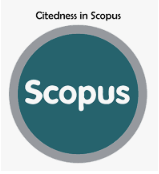Innovative Curriculum Adaptation in Aligning Learning Content with 21st-Century Skills: A Case Study in Senior High Schools
DOI:
https://doi.org/10.56404/jels.v5i1.111Keywords:
Curriculum Adaptation, 21st-Century Skills, Learning Innovation, Project-Based Learning, Learning ContentAbstract
The rapid advancement of technology and increasing global competition necessitate educational adaptation to 21st-century skills, including critical thinking, creativity, communication, and collaboration (4C). This study aims to analyze how innovative curriculum adaptation aligns learning content with these essential skills in several senior high schools (SMA) in Bojonegoro. Employing a qualitative case study approach, data were gathered through in-depth interviews with school principals and teachers, classroom observations, and document analysis. The findings reveal that schools have integrated digital technology into learning, implemented project-based learning (PBL), and conducted teacher training to enhance 21st-century skills. However, challenges such as inadequate technological facilities, varying levels of teacher readiness, and resistance to new teaching methodologies were identified. These findings suggest that innovative curriculum adaptation plays a significant role in preparing students for future challenges. Therefore, stronger support from schools, policymakers, and society is required to optimize the effectiveness of curriculum adaptation in fostering 21st-century competencies
References
Adiele, E. E., & Abraham, Nath. M. (2013). Achievement of Abraham Maslow’s Needs Hierarchy Theory among Teachers: Implications for Human Resource Management in The Secondary School System in Rivers State. Journal of Curriculum and Teaching, 2(1), p140. https://doi.org/10.5430/jct.v2n1p140
Andriani, L. (2023). Evaluation Of The Project Based Learning Model As The Implementation Of The Independent Learning Curriculum. International Journal of Current Economics & Business Ventures, 3(2).
Creswell, J. W., & Clark, V. P. (2007). Mixed methods research. Thousand Oaks, CA.
Habibulloh, M., Sholeh, M. I., & Idawati, K. (2024). Exploring Technological Innovations and Approaches in Modern Education. SAHRI: Journal of Studies in Academic, Humanities, Research, and Innovation, 1(1), 49–66.
Heryahya, A., Herawati, E. S. B., Susandi, A. D., & Zulaiha, F. (2022). Analisis Kesiapan Guru Sekolah Dasar dalam Implementasi Kurikulum Merdeka. Journal of Education and Instruction (JOEAI), 5(2), 548–562. https://doi.org/10.31539/joeai.v5i2.4826
Liu, H., Spector, J. M., & Ikle, M. (2018). Computer technologies for model‐based collaborative learning: A research‐based approach with initial findings. Computer Applications in Engineering Education, 26(5), 1383–1392. https://doi.org/10.1002/cae.22049
Ma, X. Z., Ertmer, P. A., & Pelgrumen, C. P. (2024). The Impact of Technology Integration on Student Learning Outcomes. JTL: Journal of Teaching and Learning, 1(1), 73–90.
Miles, M. B., Huberman, A. M., & Saldaña, J. (2014). Qualitative Data Analysis: A Methods Sourcebook. Sage Publications.
Minarti, S., Ma’arif, M. J., Manshur, A., ‘Azah, N., Sholeh, M. I., & Sahri, S. (2024). The Influence Of Teacher Training And The Use Of Educational Technology On The Effectiveness Of Islamic Education Learning At Man 1 Bojonegoro. Educational Administration: Theory and Practice, 30(4), 64–75. https://doi.org/10.53555/kuey.v30i4.1404
Pawar, S., & Dhumal, V. (2024). The role of technology in transforming leadership management practices. Multidisciplinary Reviews, 7(4), 2024066. https://doi.org/10.31893/multirev.2024066
Sari. (2024). Penerapan P5 Project Based Learning pada Pendidikan Anak Usia Dini. PrimEarly : Jurnal Kajian Pendidikan Dasar dan Anak Usia Dini, 7(2).
Seidman, I. (2006). Interviewing as qualitative research: A guide for researchers in education and the social sciences. Teachers College. Coloumbia University.
Sholeh, M. I. (2023). Strategi Manajemen Organisasi Pendidikan Islam dalam Menghadapi Tantangan Global. Edu Journal Innovation in Learning and Education, 1(1), 1–27. https://doi.org/10.55352/edu.v1i1.456
Sholeh, M. I., Lestari, A., Erningsih, E., Yasin, F., Saleh, F., Suhartawan, V. V., Pattiasina, P. J., Widya, A., Sampe, F., Fadilah, N. N., & others. (2024). Manajemen Kurikulum. CV. Gita Lentera. https://books.google.co.id/books?id=Ql8FEQAAQBAJ
Sleeter, C. (2018). A framework to improve teaching in multicultural contexts. Education & Self Development, 13(1), 43–54. https://doi.org/10.26907/esd13.1.05
Susanti, R., Rohman, M., & Hayati, R. M. (2024). Analysis of Qur’an Tahfidz House (RTQ) Management at Rumah Tahfidz Center Lampung. Jurnal Ilmiah Iqra’, 18(1), 97. https://doi.org/10.30984/jii.v18i1.3083
Syafi’i, K., & Ikwandi, M. R. (2023). Strategi Kepala Sekolah Dalam Meningkatkan Mutu Pendidikan Melalui Program Unggulan di SMK Kiyai Mojo Tembelang Jombang. JMPI: Jurnal Manajemen, Pendidikan, dan Pemikiran Islam, 1(2).
Veletsianos, Dr. G., VanLeeuwen, Dr. C. A., Belikov, O., & Johnson, Dr. N. (2021). An Analysis of Digital Education in Canada in 2017-2019. The International Review of Research in Open and Distributed Learning, 22(2), 102–117. https://doi.org/10.19173/irrodl.v22i2.5108
















